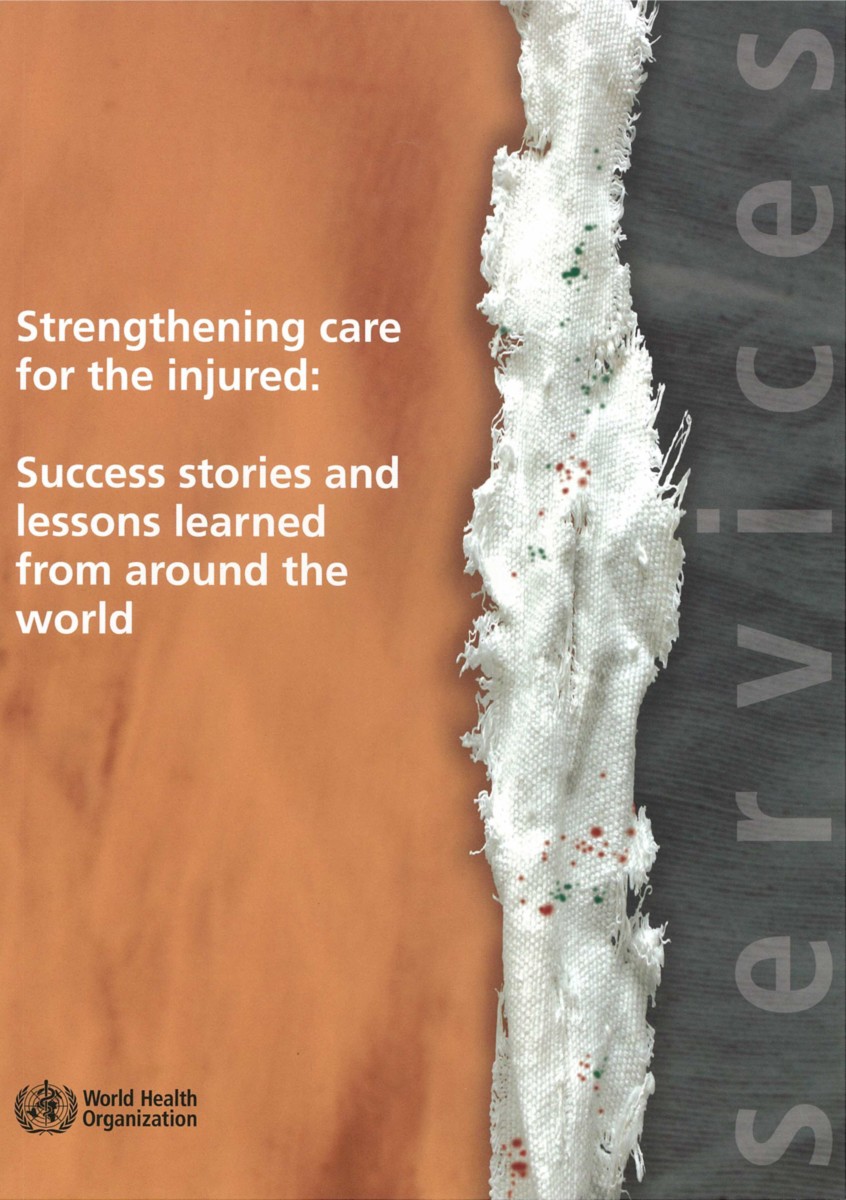Strengthening Care for the Injured
Success Stories and Lessons Learned from Around the World
- Publisher
World Health Organization - Published
2nd August 2010 - ISBN 9789241563963
- Language English
- Pages 69 pp.
- Size 8.5" x 11.75"
Through this publication, WHO seeks to increase communication and the exchange of ideas among those working in the field of trauma care, whether in the prehospital setting, in acute care in hospitals, or in longer term rehabilitation; to increase communication among those involved in planning, administering, advocating for, or directly providing trauma care services; and to increase communication among those working in the field of trauma care in different countries worldwide.
This book contains only some of the innovative and significant work being done by many individuals, institutions, and governments globally. It provides a range of case studies, including those from prehospital, hospital-based, rehabilitation, and system-wide settings, and from countries in all regions of the world and at all socioeconomic levels. These case studies have common themes and lessons learned. One of the most important of these is the need for perseverance, as many of the improvements took years to implement. Another lesson is the need for attention to detail. There was no magic bullet involved. Improvements occurred primarily by attention to detail in planning and organization. There are also important lessons learned about the role of health policy in extending trauma care improvements nationwide, beyond centers of excellence, and about the importance of using advocacy to increase political commitment, whether at the national, provincial, or institutional level. Finally, the case studies show that improvements can be made even in the poorest and most difficult of circumstances, and that even well-resourced environments can benefit from improved organization and monitoring of trauma care services.
World Health Organization
World Health Organization is a Specialized Agency of the United Nations, charged to act as the world's directing and coordinating authority on questions of human health. It is responsible for providing leadership on global health matters, shaping the health research agenda, setting norms and standards, articulating evidence-based policy options, providing technical support to countries, and monitoring and assessing health trends.


